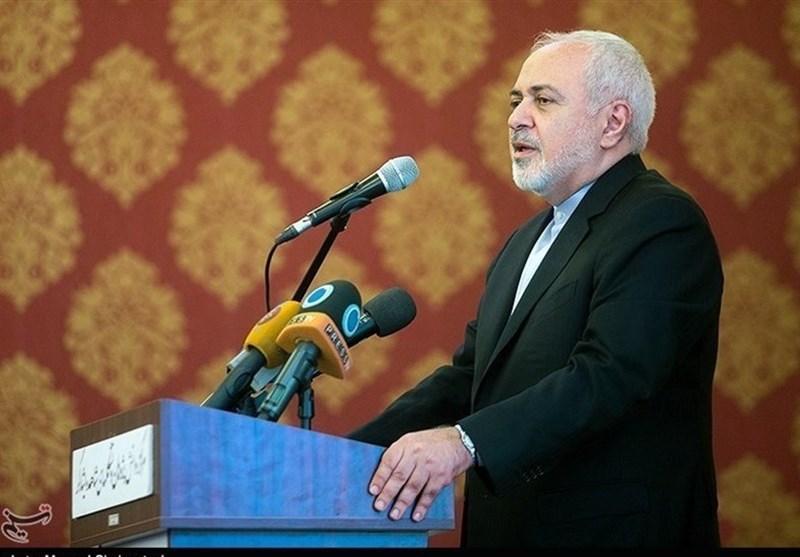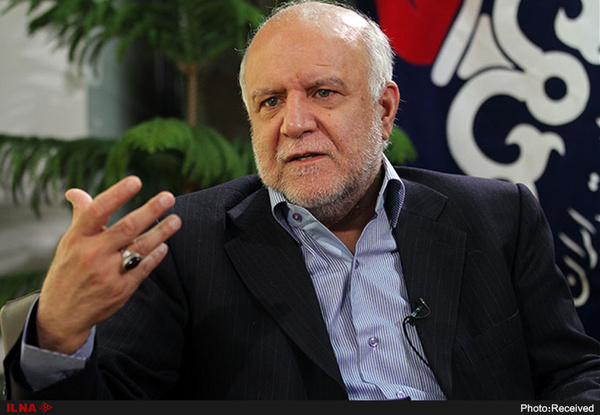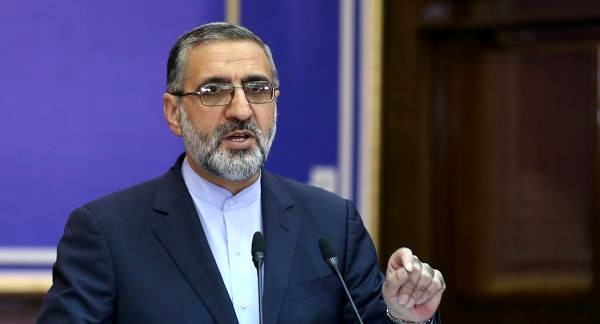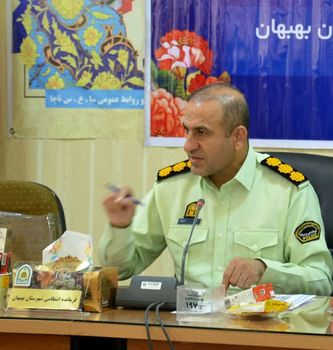
High Price of the Dollar and the behavior of Policymakers
The editorial of Jahan Sanat written by Mahmoud Alavi, the Central Bank of Iran’s (CBI) former currency deputy, explains why the collapse of the national currency is the main economic issue today.
Iran’s economy is facing tough conditions. Currency incomes have declined, and the government has no other sources to meet domestic demand for forex. In addition, foreign currencies are not entering Iran, which has resulted forex prices rising and instability in the market.
Exporters must bring forex back to the country within a certain period. Now that the government cannot sell oil, the coronavirus crisis has created an economic recession, and importing essential goods is subject to several hurdles, it is up to the exporters to bring forex back to the country.
But perhaps the delay in bringing forex back to the country is a result of unleashed forex prices in the market. Exporters might postpone bringing forex to the country as much as they can so that they can benefit more from fluctuations in the currency market.
Under these circumstances, the CBI is to interact with exporters and facilitate the return of currency to the country. The CBI can even give them a deadline and refer the case to the judiciary if exporters do not meet the deadline.
We should not forget that parallel markets compete. For example, the dollar’s price went up from 1,000 tomans in 2011 to 20,000 tomans in 2020. Under such circumstances, the capital market tries to compensate for the difference in the dollar’s price. So, all parallel markets like housing, currency, gold, and capital try to grow and keep up with other markets.
The main reason is the budget deficit and high inflation which has resulted in the collapse of the national currency. So instead of talking about prices of goods and items going up, we should talk about the collapse of the national currency as the result of growing liquidity in the economy.
Increase in the Currency Rate; Cause or Effect?
The editorial of Jahan Sanat explains why the recent increase in the currency rate is the outcome of the Iranian government’s policies.
Instability has hit Iran’s economy hard. While economic investments must be directed towards production and creating economic prosperity, Iranian policymakers have focused on stimulating business, instead of helping production. The economy needs to depend on the private sector and markets to achieve flexibility and stability.
As long as the government which is in charge of oil revenues keeps on interfering in the economy, and the CBI manages banks, an increase in currency rates and instability will continue to impact Iran’s economy.
Evidently, when the government is in charge of all economic fields and the pricing system, it is unable to contain the foreign currency rate and keep it low, in the absence of petro-dollars and low currency incomes. So, despite the fact that the Iranian government could stop the increase in the currency rate in the past, this has become impossible now.
Since the increase in the currency rate is due to a number of problems in Iran’s economy, attributing economic problems solely to this issue is not right. Fluctuation in the currency rate is the result of incorrect policies, a lack of interaction with the world, and not having a production and market-centered economy.
The main disease in Iran’s economy is the government’s interference in economic policymaking and injecting oil revenues which results in an upsurge in liquidity in markets. The government has always been the main cause of problems and disarray in markets and has not done much to improve economic conditions. During the past two years, the government has tried to control the currency rate and stop it from going up, but it cannot stabilize the currency rate any longer as its previous currency sources have decreased.
Adding Insult to Injury!
The editorial of Mostaghel asks why the Iranian establishment does not recognize the right of the people to peacefully protest against deteriorating economic conditions in Iran.
For several years, every now and then people have been taking to the streets to protest unemployment, high prices, injustice, and widespread corruption. Despite the fact that officials seem to agree with Article 27 of the Constitution which grants people the right to protest, they have not fully recognized it.
In recent years, the way protests have been dealt with is adding insult to injury, causing protests to spread to other places. For example, in 2019 when there were protests against gasoline prices rising, protesters were called seditionists, foreign agents, and troublemakers.
Later it was announced that 230 people were killed during these protests, but no official has accepted responsibility for the violent crackdown on protesters so far.
These days we have witnessed calls for protests in the cities of Behbahan and Mashhad – and in both cases, the response of law-enforcement agencies was heavy-handed. In Behbahan, law-enforcement agencies issued a statement saying that “few people have gathered to protest against poor economic conditions; we tried to disperse them by talking to them; they chanted subversive slogans against the regime; the police dispersed them with power.”
In Mashhad, the IRGC issued a statement urging that “some opposition forces called for people to gather in the streets to protest; they were identified and arrested. In some of the records of detainees, we can see offences like espionage to undermine national security, calls to riots and attempts to disrupt peace and order.”
Such statements emphasize that the protesters are small in number, they are dealt with decisively, and they have ties with foreign countries or are spies!
Now the question is: Can we deny the massive economic problems that exist in Iran? Can we deny that these protesters are the very poor people who took part in the 1979 revolution? If these facts are irrefutable, should not people have the right to protest? And is it really strange to chant harsh slogans during protests?
Nowadays we are witnessing violence against popular protests all over the world in countries that claim to be democratic, and the Iranian establishment has fully supported the people’s right to protest in other countries. Should we not give our own people the right to protest?
Fighting Money Laundering, Some Other Time Perhaps!
The editorial of Aftab Eghtesadi urges that the Iranian government must take immediate measures against not just the impacts of US sanctions, but also against rampant economic corruption.
Because of the rise in the dollar’s price during the past eight months and the plummeting value of the national currency, purchasing power has dropped by 80 percent. The drop in the value of the national currency against the dollar and the euro is due to both Iran’s international policies and its domestic policies.
During the implementation of the new round of US sanctions, the Americans made the most of past experience, knowing that Iran’s petrochemical exports are limited to a few countries. They even know that 50 percent to 70 percent of Iran’s currency is spent in the Emirates – particularly in Dubai.
But Iran did not learn lessons from the past. The lack of diversity in trade and foreign partners is another weak point for Iran’s currency, because 50 percent to 60 percent of Iran’s exports and imports is limited to only four countries, which makes Iran’s economy fragile.
On the other hand, a huge amount of dollars and euros were taken out of the country, while many people closed their bank accounts, which resulted in a 30 percent rise in the inflation rate. This is why some believe that the government is to blame for the steep rise in prices.
Many believe that if the rise in the price of the dollar continues, Iran’s economy will collapse, as it can only bear the rise in the price of the dollar up to a certain point.
Many economists maintain that these conditions can be mitigated through creating diversity in trade partners, preventing the smuggling of goods, not spending forex on importing non-essential goods and tourism, and by retrieving the money owed to Iran for exporting petrochemical items. These measures might prevent Iran from turning into another Venezuela.
However, Iran’s economy currently suffers from issues other than the US sanctions: rent-seeking, economic corruption and money laundering. These have nothing to do with sanctions. Rather, some people mention sanctions just as an excuse to get what they want.
The government has to manage all these issues; or else Iran’s economy will face irreparable damage.

Iraqi Prime Minister Mustafa al-Kazemi Goes to Tehran; Zarif Goes to Moscow to Renew 20-year Agreement With Russia

Iran has increased its regional and international activities as its economic conditions continue to deteriorate with the price of the dollar reaching an unprecedented high.
Iraqi Prime Minister Mustafa al-Kazemi came to Tehran on Tuesday on a pre-planned trip while two days earlier he had hosted Iranian Foreign Minister Mohammad Javad Zarif.
Kazemi is scheduled to meet with Iranian Supreme Leader Ali Khamenei, Iranian President Hassan Rouhani and Iranian Parliament speaker Mohammad Bagher Ghalibaf during his two-day trip to Iran.
Kazemi’s visit to Tehran is in light of the killing of Qassem Soleimani by the United States near Baghdad’s airport, which pushed the two countries to the brink of a full-fledged war. Iraqi officials have reiterated that they do not want their county to turn into a battlefield for a war between Iran and America.
Iraq has played a significant role in Iran’s policies after the US withdrawal from the nuclear deal and the return of sanctions. Currently, due to the coronavirus pandemic, trade relations between the two countries and Iran’s access to foreign currencies through financial institutions in Iraq have been disrupted.
In the meantime, while Iran’s 25-year contract with China has sparked negative reactions, Iranian Foreign Minister Mohammad Javad Zarif went to Moscow to negotiate the renewal of Iran’s 20-year-old contract with Russia.
Zarif mentioned that “if our Russian friends are willing, we can have another long-term contract with them,” adding that during this trip, multilateral, regional and nuclear issues will be discussed.
The Iranian foreign minister has described Iran-Russia relations as strategic, stressing that in light of the current developments at the international level, talks must be held regularly.
In 2001, during Mohammad Khatami’s presidency, a treaty was signed between Iran and Russia. The treaty has 21 articles and was signed for a 10-year period, with the possibility of being renewed every five years.
No Country Signs Agreements With Iran, Says Oil Minister

On the sidelines of signing the contract for developing the Azadegan Gas Field, Iranian Oil Minister Bijan Zangeneh told reporters that the contract has been signed with an Iranian company as no country is ready to sign any contracts with Iran.
With regard to Farzad Gas Field, he said that the contract will soon be signed and all necessary decisions are being taken, adding that the contract is not going to be signed with the Indians and it will be with an Iranian partner as “under current conditions, no foreign country is willing to sign any contracts with Iran in any field.”
Farzad Gas Field is a joint field between Iran and Saudi Arabia in the Gulf. Since the early 2000’s, the Iranian National Oil Company was negotiating with a consortium of Indian, Malaysian, and Canadian companies to explore this field. Eventually, at the end of former President Ahmadinejad’s second term, Iran started negotiations with the Indian side – which has not come to fruition. Again and again, Iran has complained about the slowness of the Indians in these talks.
With regard to the controversial 25-year agreement that is going to be signed between Iran and China, Zanganeh called it a general agreement, adding that as for oil, “the Chinese haven’t asked for any concessions and we haven’t given them anything.”
The Iranian oil minister didn’t give any explanations about the details of the contract with China, just saying that according to this contract, “we will have long-term cooperation with China in the oil industry.”
Many have protested against the 25-year agreement between Iran and China, calling it disgraceful. They have argued that this document will hand over Iran’s gas and oil resources to the Chinese.
Death Sentences of Three Protesters Suspended in the Wake of Twitter Storm

Iran’s judiciary had to suspend the death sentences handed down to three young protesters who were arrested during Iran’s nationwide protests in November 2019. The sentences were put on hold after a huge number of social media users – with more than 11 million tweets – launched a Twitter storm with the hashtag: Do Not Execute!
The attorneys of these three young protesters announced in a statement that the Supreme Court has agreed to reinvestigate their cases. “Carrying out the death sentence of our clients will be suspended until the final judicial decision is made about this case,” said the statement.
Amir Hossein Moradi, 25, Saeed Tamjidi, 27, and Mohammad Rajabi, 25 are the three protesters who have been sentenced to death on charges of “participation in destruction and arson for confronting Iran’s establishment” and “enmity against God,” among other charges.
For several hours, the hashtag #Do Not Execute became the top trending hashtag worldwide. US President Donald Trump as well as the foreign ministers of Sweden and Denmark took to Twitter to urge Iranian authorities to halt these executions.
Protests spread all over Iran last November after the sudden tripling of gas prices was announced by officials. During the bloody crackdown to subdue these protests, at least 1,500 people were killed, according to Reuters.
Iran’s judicial system denies succumbing to pressure via Twitter.
After the suspension of the death sentences, Iranian judiciary spokesman, Gholam Hossein Esmaili, reacted to social media users who posted millions of tweets against the death sentences handed down to the three protesters, saying they were all “robots.”
“We do not care about antirevolutionaries, opposing trends or media empires of enemies of the establishment and Revolution,” noted Esmaili. “A number of individuals ignorantly joined this group without knowing what was going on,” he added.
Police Warn People Against Participating in Assemblies After Protests Erupt in Southern Iran

The city of Behbahan in Khuzestan province turned into a scene of protest on the night of July 16, with people chanting slogans against the government and the country’s dire economic situation. During this protest, which was met with tear gas and police violence, a number of people were arrested by security forces.
The Behbahan Police chief said people held an assembly “to protest economic conditions” but the police “firmly dissolved it.”
Mohammad Azizi added, “A small number of people” took part in the assembly and chanted “subversive slogans.” Immediately afterwards, Behbahan Police Force issued a statement warning people against participating in assemblies in the city.
In the video clips published on social media of this protest, slogans can be heard such as: “Neither Gaza, nor Lebanon; my life for Iran,” “Iranians die but won’t surrender to oppression,” “Shame on you, Basij! Let go of this country!”
It has been also reported that one of the protesters named Farzaneh Ansarifar, the sister of another protester who was killed during the November 2019 unrest, was arrested in Behbahan on the night of this assembly.
According to NetBlocks, there were internet restrictions and partial disruptions in Khuzestan province at the time.
Sources:
